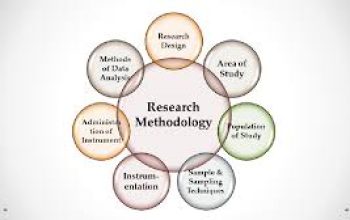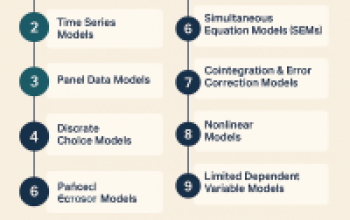PhD Research design Service
Get Professional Research Design Drafting Service for Your Research Methodology or Manuscript
Research Design Drafting Service for Your Research Methodology or Manuscript
Ph.D. Research Design – From Top-Class Universities Across the Globe
At PhD Assistance Research Lab, we expertly assist in the writing of your PhD research design – an excellent basis for successful PhD research. Our team of expert PhD graduates have many years’ experiences in research methodology having studied at top 1% universities in the UK, US and globally. They have deep discipline knowledge and are used to supporting PhD scholars in top tier institutions. Together, we are confident you will be receiving an academically powerful research design.
We operate in an organized student-friendly environment, providing inclusive support throughout the research design process. Our key strengths of strategic planning, presentation style, academic structure and 100% commitment mean that your research project will not only be complete but academically competitive, and submission-ready before your deadline
Importance of a Strong Research Design
Research design is more than an outline. It is a roadmap for relating the conceptual problem you research to an empirical inquiry with validity. It also relates to:
• The data required
• The processes of collecting the data and methods to make sense of the data
• How these elements are linked to your research question and will help answer the research question.
• A solid research design ensures:
• The research addressed the research topic
• The findings are reliable and valid
• The data was collected ethically and was within the feasibility of the study
• The research can be duplicated and is defensibly academic
The research design, regardless of whether qualitative, quantitative, or mixed method, should reflect the logic of inquiry, the purpose of the study and the direction of reasoning (inductive or deductive).
Challenges Faced by Ph.D. Scholars in Research Design
When Ph.D. students come to write a research design they will typically run into many challenges:
1. Uncertainty about choosing the appropriate design Scholars have trouble distinguishing between exploratory, explanatory, descriptive, and predicative designs.
2. Difficulty in aligning objectives with methodology Many will not link their research objectives with the data collection or sampling methods chosen.
3. A lack of clarity around the difference between research design and methodology Scholars do not differentiate between the overall study design and the individual research methods.
4. Insufficient justification for choices made Students do not outline why the had felt the need to do one approach and not the other which devalues the methodology chapter overall.
5. Constraints around time and resources The limitations around availability of tools, and data access, and access to supervision can delay their ability to start and impact the quality of the design.
Our Structured Process with Fixed Timeline & Deliverables
Once you confirm your project:
1. We will assign a specific subject matter expert
2. You will have a 1-on-1 call to discuss technical considerations and deliverables.
3. We will draft a timeline and outline
4. You will receive your research design in a format which can be seamlessly incorporated into your methodology chapter or manuscript.
We are incredibly driven and conscientious about:
• What to include and not include;
• Sentence structure and writing style;
• Field specific presentation;
All writing is congruent with you university formatting and expectations, and academic standards.
What Makes Our Ph.D. Design Drafting Exclusive?
Not only do we write, but we also educate, mentor, and empower, through:
• Individually tailored, one-on-one brainstorming sessions.
• Methodological comprehension pertaining to your methodological approach.
• Contemporary references and best practices.
We prepare you for submission to defend, and for publication.
🔗 Let your research begin with a design that works--scientifically sound, ethically responsible, and academically solid
We ensure zero plagiarism in all theses, dissertations, or manuscripts that we provide. Documents are checked with Turnitin, WriteCheck, and other AI content discovery tools to guarantee your work is human-authored, research-driven, and institution integrity-check-worthy. We do not use AI-generated content—our work is 100% expert-authored and fully aligned with academic norms.
All our works are completely original crafted by experts on the domain such as
- Computer Science & AI
- Law & Public Policy
- Social Sciences
- Engineering
- Life Sciences
- Medicine & Clinical Research
- Management & Finance
- Philosophy & Humanities
Our area-specific experts such as industry researchers, university professors, and licenced physicians make sure the depth and accuracy of every project that we undertake.
We edit your research work based on your university’s guidelines for structure, word count limit, and citation format. Whether you are studying at IIMs, ox
Whether you’re studying at IITs, IIMs, Oxford, Harvard, Cambridge, NUS, or UGC-recognized institutions, we guarantee that your thesis meets all the academic and formatting standards required.
Our researchers use peer-reviewed journals and credible academic sources from:
- Scopus
- PubMed
- IEEE Xplore
- JSTOR
- Springer
- Elsevier
- ProQuest
- Web of Science
We ensure every reference is traceable, current, and cited accurately in the required referencing style (APA, MLA, Harvard, Chicago, Oxford, Vancouver, etc.).
Our team includes:
- Writers with years of experience on the domain
- Editors with knowledge of English grammar and domain expertise.
Proofreaders trained in grammar and consistency.
We provide unlimited revisions to address your university feedback.
Whether it’s editing a literature review or methodology reworking or improving suggestions, and our team will work until the client satisfied.
We use the most recent versions of APA, MLA, Harvard, Chicago, and Vancouver citation styles. Our work is properly cited, bibliography and all, and in line with university codes on ethics. Tools for citation management employed are Mendeley, Zotero, and EndNote.
We offer biostatistics, econometrics, and data analytics services employing tools such as:
- STATA
- R
- AMOS
- NVivo
- MATLAB
- SPSS
We support you with data cleaning, sample size calculation, hypothesis testing, all done by expert statistical analysts and PhD scholars.
Each project is completed by the dedicated schedule. We offer:
- Minor revisions in 24 hours.
- Major revisions in 48 hours.
• Fast communication (30-minute responses during business hours)
We maintain word counts as required by the university (8,000–80,000+ words), excluding non-content areas such as references, appendices, tables, and figures. No filler content—just intense, academic writing.
We provide complete transparency by sharing all study sources:
- Journal articles
- PDFs and reports
- Datasets
- Lecture notes
- Translated works
- YouTube academic links
- PPTs, legal documents, and more
These help you prepare for viva-voce, future publications, or further coursework.
Our Research Design Service by Subject Area
Types of Research Design That We Carry Out
Descriptive Research Design
- Data Collection: Is driven by the complete collection of statistical data to describe a population or phenomenon at a unique point in time.
- Foundational Summary: Helps identify important variables, patterns, and trends can provide a foundation for future research or testing hypotheses.
Longitudinal Research Design
- Observation Over Time: Repeated observations of the same group of people/subjects over a long period of time to study the changes or developments that occur over time.
- Trend Study: A good design for examining long-term impacts or studying the effects of specific interventions, longitudinal designs are, generically, commonly used in fields of health, education, and social sciences.
Action Research Design
- Practical issues: Action research design emphasizes the immediate practical issues of a particular context that the participants are involved with in the research project.
- Cycle: Action research is conducted using cycles of planning, action, observation, and reflective critique that is intended to develop the practice as a site of research based on the findings.
Exploratory Research Design
- Initial Exploration: Is used when there is insufficient information on a topic and serves to examine and define research questions or theories.
- Qualitative: Uses methods that stimulate free-flowing conversation and include interviews, focus groups, and case studies, so you may capture in-depth understanding of a group. Exploratory research is also a common starting point for quantitative and/or confirmatory research.
Cross-Sectional Research Design
- Snapshot of Data: A study collects data at one point in time and also obtains data on different groups or groups to age at that time to look at the interrelations or differences between groups.
- Comparative Study: Excellent way to look at prevalence or variance in different populations or subgroups, without time-consuming and arduous long-term follow-up studies.
Cohort Research Design
- Exposed groups: Cohort designs include observing a group (or cohort) of interest over a period of time to learn how exposures and conditions affect long term outcomes.
- Longitudinal or retrospective: Cohort designs can be developed to longitudinally follow subjects into the future or retrospectively study outcomes that were based on someone else’s data; hence cohort designs are well suited as research designs in health-related experiments.
Experimental Research Design
- Cause-and-Effect: Is considered when the researcher manipulates the independent variables and then measures the dependent variables to determine a cause-and-effect relationship between them.
- Controlled: Experimental designs use controlled groupings, randomization and strict protocol to maintain results accuracy and reliability, therefore experimental designs are the gold standard for testing hypotheses.
Causal Research Design
- Objective of Causation: Used to identify causal relationships between variables; usually employ some type of statistical tool like regression or path analysis.
- Specific Triggering Effects: Shows causation aspects and how change in one variable affects another variable, which can help researchers determine the effect of specific intervention(s) or life event(s).
Case Study Research Design
- In-depth Case study research includes an in-depth inquiry into a particular case or very small number of cases by using individuals, organizations, and events.
- Qualitative: Case study designs will generally use interviews, observational research and document analysis to generate very rich field data from a particular context to provide understanding of unique and complex phenomena.
Order process
Step 1:
Submit Your Research Requirements and Make Payment
Fill out the order form with as many relevant details about your research design requirements, objectives, and format. Then, make a secure online payment to allow us to start framing and structuring your research design right away.
Step 2:
Order Confirmation & Expert Allocation
You will be notified of payment processing, and you will get a confirmation order once your payment has been processed. An advanced research design expert with experience in your field of study will also be allocated to your design to ensure the research design is in line with your specific academic requirements.
Step 3:
Initial Design Framework & Regular Updates
The expert will start designing and completing your research design framework, paying close attention to the drafting of methodology, sampling methods and data collections methods. You will be kept informed of any updates on progress. Any changes, updates or new information provided from your supervisor, or within your university, we can change as necessary.
Step 4:
Review & Refinement of Design Framework
Once we have researched your research design we will begin the process of reviewing, revising and editing to the academic standard required. If revision is required, we will make sure the revision is what you want and work through any edits that we need to make or recommendations based on feedback.
Step 5:
Feedback & Revision
You will have the chance to view the draft design plan. If your supervisor or university require revisions, our team will complete unlimited revisions at no extra charge, to ensure your research design meets their requirements.
Step 6:
Final Delivery & Ongoing Support
You will receive, via email and our online management system, your final research design document inclusive of all supporting documents. We value your feedback as it gives us information to improve our service, and we provide you with continued support or consultation as needed as you continue on your adventure of research.
Research Design Service Packages
Scientifically Grounded | University-Aligned | Expert-Driven
- Review of the research topic and objectives
- Confirmation of intended research purpose (exploratory, explanatory, etc.)
- Recommendation on research design (qualitative, quantitative, or both)
- Brief write-up about design rationale (up to 500 words)
- 1 round of revision
Delivery Timeline: 5 working days
Suitability for: Topic approval, concept papers, early proposals
Most Appropriate For: Academics writing the methodology in a thesis or research proposal
- Consultation on research problem, aim and objectives
- Development and justification of study design
- Outline sampling strategy and data collection strategy
- Discussion of accepted and unaccepted study designs
- 1,200-word structured write-up
- 2 rounds of revisions
Most Appropriate For: Proposal defence, ethics committee, coursework dissertations
Best for: Scholars finalising their methodology for a thesis or journal submission
- Complete research design with integrated methodology framework
- Description of the theoretical model
- Identification of variables, constructs, and units of analysis
- Description of the data collection and analytical techniques
- Models of modelling tools (i.e., NVivo, SPSS, MATLAB, R)
- Detailed justification of the methodology with citations
- Word counts up to 2,500 words
- 3 rounds of revisions + expert consult call
Best for: Dissertation chapters; journal manuscripts; interdisciplinary research
Best for: Full-service support for your methodology journey
- Initial one-on-one consultation with a Ph.D. expert
- Selection of research approach and philosophy
- Justification of research strategy, sampling, data collection
- Assistance with power/sample size calculations (if applicable)
- Drafting of complete methodology chapter (up to 4,000 words)
- Unlimited revisions until approval
- Optional inclusion of ethical considerations and data limitations
Ideal for: Final dissertation submission, publication, cross-border Ph.D. programs
Our Approach to Research Design at PhD Assistance Research Lab
PhD Assistance provides expert research design services to ensure that your study is methodologically sound and aligned with your aims. Our personalized expert guidance covers the entire research process, from how to frame your research question to how to collect and analyse data. You will work collaboratively with the team, to provide you with a design that met all your needs and constraints, but also resulted in ethically sound research, in addition to a useful study.
We'll assist you in determining the primary purpose of your research—whether you wish to explore, describe, explain, predict, evaluate, or study the past. Knowing exactly what type of research you are performing will assist us in deciding how to develop a research design and undertake the research process.
We'll provide assistance in determining the best study design for your study (e.g., survey, experiment, ethnography or program evaluation) based on your research goals and context.
Whether you are looking for support for primary data collection (e.g., surveys, interviews), or support for secondary data analysis (e.g., statistical modeling, content analysis, discourse analysis), we provide support based on your research purpose and needs.
We provide a full explanation of the data collection configuration, including characteristics of your sampling plan, and identification of applicable data collection and data analysis tools and methods.
We help you be able to rationalize your adopted approaches, as well as provide comparisons to rejected alternative approaches. This can assist in providing some reassurance that the methods used in your research are the best and most defensible.
We assist you to develop your initial theoretical model, as well as consider the possible analytical framework proposed to your research questions and methodology.
Review of Modelling Tools and Analytical Techniques Depending on your discipline and research aims, we provide an overview of relevant modelling tools and analytical techniques to prepare you for the complexities of your data.
We can provide support throughout your research as you are continuously refining what you need to keep the research process relevant and manageable to your changing objectives.
Whom We Serve – Research design Service for your PhD Dissertation
PhD Assistance Research Lab serves a variety of clients that include academic, institutional, and corporate partners that have a variety of responsibilities within stakeholder stages in different types of original research.
We can support unique research designs for your unique research and all its complexities and variables if you are a PhD or doctoral student working with original research. It doesn’t matter if your research design is descriptive, experimental, or longitudinal, we will help you set up the framework for your study, collect the appropriate data, and ensure your research design aligns with your objectives.
We work with universities, research committees, and institutional departments, and provide support for having students, faculty, and researchers develop reliable research designs that conform to institutional standards. Services include helping faculty and research supervisors select an appropriate design (e.g. cross-sectional, exploratory, or case study) and whether their research design consequences of academic integrity and ethical compliance were considered.
We offer independent researchers and academics professional support on research design choices that are specific to the scope of your field (e.g., engineering, social sciences, psychology). We help you identify appropriate designs (e.g., experimental, case study, instrumentation) as well as identifying methodology that may improve the quality of your research outcomes, thus ensuring the outcomes of your research are trustworthy.
Our support for healthcare professionals and medical researchers delves into the complex choices that can dictate the research design for clinical trials, patient experience studies and the evaluation of a healthcare system. Whether it is a longitudinal study using decently defined variables or an experimental trial, we can assist you in identifying the appropriate methods (e.g., scaled scores, or other means) for analysing your health data so that the accuracy and/or validity of your research are achieved.
For R&D teams conducting research and development in corporate or industry contexts, we support you in your research design choices to determine R&D that will facilitate product evolution, improve user experience or study organizational behaviour. If you are undertaking an action research study, or a cross-sectional or cohort study, we help you to design the research to be actionable with respect to the intended business goal.
We serve international students and scholars based in the US, UK, Australia, India, UAE, and Europe, by developing research designs that meet the criteria for global academic standards. We strive to ensure your research design satisfies your institution’s needs, regional-specific software is used, and your study is consistent with what is expected of a dissertation at any university in the world.
Check at what stage you’re into & Analyse how you can fit into our engagement model
Matteo

Research Methodology Justification and Alignment We help justify your methodology is quantitative, experiential, survey, case study, observational. We help you link your methodology to your research model, research questions, and research hypothesis, providing overarching coherence and ontological transparency across all your work.
Sofia

Research Design and Methodologies We help you design a solid research plan from scratch. You're welcome to use qualitative, quantitative, or mixed methods. We work with you through developing research questions, research methods, and aligning your objectives of the study with your theoretical framework. We'll also ensure you follow academic standards and basic research ethics.
Elena

Statistical Test Selection & Application We provide complete support with identification and application of the best biostatistical technique based on your research design, hypothesis, variable types, and research objective. From t-tests, ANOVA, and Chi-square, through regression and survival analysis, our biostatistics specialists ensure methodological validity and transparency.
Daniel

Statistical Validity & Assumption Testing We help you make your research credible by testing assumptions (normality, homogeneity, etc.), sample size justification, and reliability analysis (e.g., Cronbach's alpha, ICC). Our service will get your results validated at academic and scientific levels.
Our Guarantee

Plagiarism Free

Unlimited Support

On-time delivery

Subject Matter Expertise

Communicate with your writer

Updated academic resources

Free research articles supply*
Our Sample & Example Works Speaks
Client success stories
Research Design Service
Professional Support for Research Design Methodology

"I wasn't sure how to go about putting together my clinical study design. The PhD Assistance Research Lab team guided me through picking the right study design - cross-sectional, longitudinal or RCT, to ensure it fit within my research goals and provided advice on sampling and data collection methods that improved its validity."
— Sophie Laurent, France, PhD Scholar
Rapid Turnaround of Research Design Framework

"I had a tight timeline to complete my research design before my committee review. It was important to have it submitted as quickly as possible. PhD Assistance Research Lab created a straightforward and well-structured framework which was ready to go for submission. The turnaround was priceless."
— Jonas Weber, Doctoral Candidate, Germany
Quality Research Design with Complete Methodology

"I chose their advanced research design hybrid package design, as it helped me identify the methodology I wanted to choose and develop clarity in my theoretical framework with an appropriate depth of knowledge their expert team guided me on in respect to literature and methodology which helped further develop my research."
— Isabella Rossi, Medical Researcher, Italy
Effective Research Design Deliverable

"The research design documents were clearly formatted with the appropriate academic style, with comprehensive methodologies and justification. It was ready for my thesis submission, and the service was first-rate."
— Erik Lindholm, Data Analyst, Sweden
Comprehensive Evaluation of Research Design Validity

"I was nervous about the design and validity of my study. The team at the PhD Assistance Research Lab thoroughly evaluated my methodology to validate sample size, assumptions and validity. My study is now more legitimate."
— Marta Novak, PhD Scholar in Epidemiology, Poland
Affordable Pricing"

“I fully admire PhD assistance's reputation and quality. I especially chose PhD assistance's packages as no other company offers such a service. Their service quality and timely delivery is very helpful in meeting journal deadlines. I am glad that PhD assistance offers packages at affordable price.”
-Kate Merkel-Hess
Supportive brainstorming and topic discovery

"Picking a topic for my PhD felt like looking for a needle in a haystack. I was lost until I found the topic selection guidance service at PhD Assistance. They were like personal academic cheerleaders—helping me discover what I truly cared about and could research meaningfully. It was like a brainstorming session with friends who knew their stuff. Now I’m excited to dive into my research and make a difference!"
PhD topic clarity and direction

"Choosing a PhD topic was a total headache until I stumbled upon the PhD Thesis Dissertation Topics Help UK at PhD Assistance. Let me tell you—these guys are wizards when it comes to turning confusion into clarity. They didn’t just throw random ideas at me; they took the time to understand what I was passionate about and what I wanted to achieve. It felt like having a coffee chat with a smart friend who knows all about PhDs. Thanks to their help, I finally feel like I’m on the right track and ready to tackle anything that comes my way!"
Stress-free topic selection in Computer Science

"I was very confused about selecting a research topic for my PhD in computer science. It was stressful and overwhelming. A friend recommended PhD Assistance—and it was the best decision. The expert helped me choose a topic that my guide accepted without any changes. Thank you, PhD Assistance!"
Confidence-building experience

"I recommend PhD Assistance to anyone needing help with research topic selection. I was hesitant at first, but after meeting the team, I gained confidence in articulating my ideas clearly. The title they provided matched exactly what I had in mind—it felt like they had read my thoughts. Thank you!"
Structured support for academic success

"I was feeling overwhelmed and lost when it came to choosing a PhD topic that would truly excite me and contribute to the field. Thankfully, the topic selection service at PhD Assistance gave me invaluable support. They took the time to understand my interests, strengths, and goals and curated a list of focused research areas. I found a topic that reignited my passion. Thank you, team!"
John, France
Flexible and student-friendly service

"PhD Assistance offered me great flexibility in choosing courses and research areas. The specialists helped me identify a unique and meaningful topic. It gave me a strong foundation to move confidently into the next stage of my research."
Liam
Supportive brainstorming and topic discovery

"Picking a topic for my PhD felt like looking for a needle in a haystack. I was lost until I found the topic selection guidance service at PhD Assistance. They were like personal academic cheerleaders—helping me discover what I truly cared about and could research meaningfully. It was like a brainstorming session with friends who knew their stuff. Now I’m excited to dive into my research and make a difference!"
Supportive brainstorming and topic discovery

"Picking a topic for my PhD felt like looking for a needle in a haystack. I was lost until I found the topic selection guidance service at PhD Assistance. They were like personal academic cheerleaders—helping me discover what I truly cared about and could research meaningfully. It was like a brainstorming session with friends who knew their stuff. Now I’m excited to dive into my research and make a difference!"
Quality & Compliances
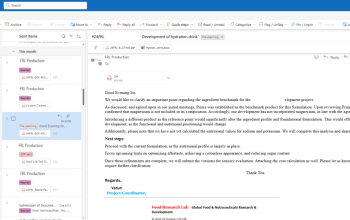
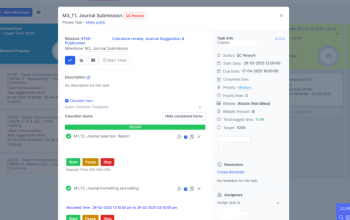
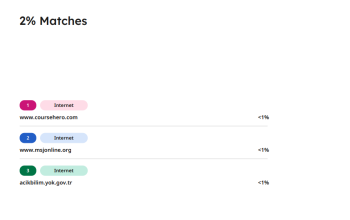
Frequently Asked Questions.
The research design must fit the purposes of the study and the research question. When designing the research, you must consider the types of data available, the ways the data could be gathered, and the logical order of inquiry (e.g., exploratory, descriptive, experimental).
- Research designs are Experimental, descriptive, exploratory
- A good research design should possess some of the good qualities like
- The design should minimize the unfairness and maximizes the reliability of data collected and analysed
- The research design should be minimum experimental errors
- A research design must have some of the research study considerations like gathered maximum information, explain research skill and research problems nature, the objective of the problem and availability of the participant to conduct research and finally, the time and money.
- The design should hold objectivity, efficient, relativity, validity and economic
- The good research design is extremely matched to the purpose or goal of the research problems.
Research design connects which research problems are conceptual to which empirical research is feasible and doable. It outlines the components of the data needed, how the data will be collected or researched, how it will be analyzed, and how everything will answer the research question. The research design aims to ensure the assumptions in the research question is answered in a plausible and practical way, taking into consideration constraints on time, resources, and feasibility.
Yes, you may communicate with our academicians via company Skype, mail, WhatsApp chat messages and call. In fact, you may directly speak to the given writers once an appointment is set with our project coordinators and make all arrangements for you.
Pricing by Ph.D. Assistance Research Lab is fair as compared to others, but the quality of the writing is unbeatable. We also facilitate seasonal discount plan, and referral offers for our customers. Please contact our project coordinators for further information.
No. We are not charging extra amount for any revision of the document. We do any numbers of revisions until our customers get satisfied. To know more details about revisions and other inquiries. Please feel free to conduct our project coordinators or request a call back on the website to get the call back from experts. You may also please read our terms and conditions while placing an order.
Sure, we will assist you. If you are searching for the courses or onsite/offsite tutor to get knowledge of how to write a dissertation, then contact us or Request call back. When you take our services, we will give you professionally and researcher who will assist to teach or train you to divide every step of the dissertation writing into manageable parts.
Insights

A Proper Research Manuscript Writing Paper must have a good topic,…









